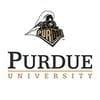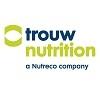Explore all the information on
Poultry egg quality
Egg quality defines those characteristics of an egg that affect consumer acceptability and preference. Components of quality include shell quality and interior egg quality for shell eggs, and interior egg quality for further processed eggs. The quality of the egg once it is laid cannot be improved. Hence, its maintenance is mostly a preventive process. Egg quality is influenced by several factors including rearing, temperature, humidity, handling, storage, and egg age. Shell quality: There are five major classes of shell defects: integrity, texture, shape, color, and cleanliness. Internal egg quality involves functional, aesthetic and microbiological properties of the egg yolk and albumen. The proportions of components for fresh egg are 32% yolk, 58% albumen and 10% shell. Regarding exterior egg quality, the shell of each egg should be smooth, clean and free of cracks. The eggs should be uniform in colour, size and shape.
Comments related to #Poultry egg quality
Top 10 content about #Poultry egg quality





































